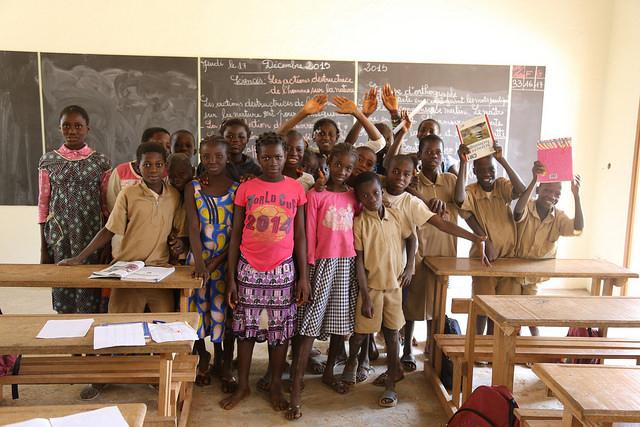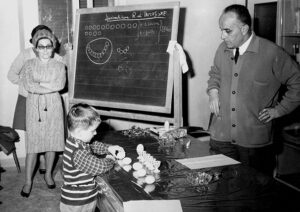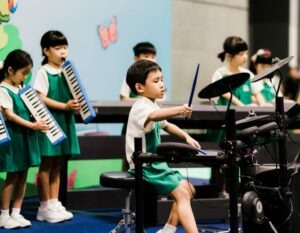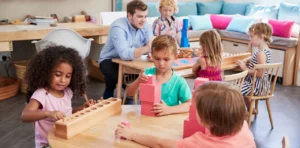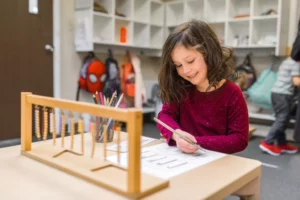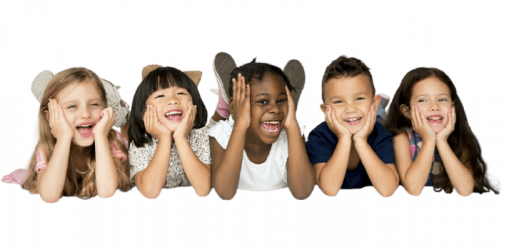Introduction: Embracing a Culture of Peace
In the fast-paced and competitive world, we live in, the significance of peace education has never been more pronounced. We believe in the transformative power of education to foster harmony, empathy, and respect for all, regardless of race, religion, or nationality. Through the Inclusion of Peace Education, we can not only shape the character and outlook of future generations but also build communities grounded in understanding and collaboration.
In today’s interconnected and often turbulent world, the role of peace education becomes paramount. We are living in an era characterized by increased cultural diversity, technological advancements, social inequalities, and political tensions. These factors, among others, contribute to a global landscape where misunderstanding, intolerance, and conflicts can easily take root.
The Core Principles of Peace Education
Understanding and Compassion
At the heart of peace education lies the cultivation of understanding and compassion. We emphasize recognizing the value and dignity of each individual, promoting empathy, and developing skills to resolve conflicts non-violently.
It encompasses not just the absence of war or violence but a broader understanding of peace, including social justice, environmental sustainability, and personal well-being.
It encompasses not just the absence of war or violence but a broader understanding of peace, including social justice, environmental sustainability, and personal well-being.
Global Citizenship
Fostering a sense of global citizenship involves nurturing awareness and responsibility towards the global community. We seek to create citizens who are not confined by geographical borders but are guided by shared values and principles.
Highlights the interconnectedness of local actions with global implications. Ensures understanding of universal human rights and personal responsibilities.
Critical Thinking and Problem Solving
We believe in empowering individuals to think critically and approach problems with an open mind. The ability to question, analyze, and reflect is crucial in building a culture of peace. Teaches learners to question assumptions, analyze information critically, and evaluate different viewpoints.
Encourages an ongoing reflection on personal beliefs, attitudes, and behaviors to understand oneself better and grow.
The Application of Peace Education
In Schools and Educational Institutions
The inclusion of peace education in schools and educational institutions is a stepping stone toward a more harmonious society. We advocate for the integration of peace education in curricula, the training of educators, and the creation of environments that foster mutual respect and collaboration.
Incorporating peace education across various subjects like history, social studies, literature, and arts. Creating content that is relevant to the local context and culture, reflecting real-world challenges and opportunities.
Establishing a culture of respect, empathy, and open dialogue within the classroom. Encouraging students to voice their opinions and feelings without fear of judgment or ridicule.
In Communities and Societies
We recognize that peace education extends beyond the classroom. In communities and societies, it involves building relationships, promoting dialogue, and engaging in activities that foster peace and understanding. Collaborating with parents to reinforce peace education values at home. Building relationships with local organizations, businesses, and civic leaders to promote peace in the broader community.
In Conflict and Post-Conflict Areas
The role of peace education in conflict and post-conflict areas is crucial. We support initiatives that aim to heal, reconcile, and rebuild communities torn apart by violence and mistrust.
Implementing school-wide programs for peer mediation and conflict resolution. Using dialogue and reconciliation to address conflicts and restore relationships.
Challenges and Strategies in Implementing Peace Education
Cultural Sensitivity
Being sensitive to cultural differences and values is paramount in ensuring the successful implementation of peace education.Resistance from communities, particularly in conflict-ridden areas, may hinder the promotion of peace values. Engage local leaders, parents, and community members in dialogue to gain support, and adapt curriculum to align with cultural norms and values.
Political agendas and policies may contradict or impede peace education goals. Collaborate with policymakers, advocate for supportive legislation, and raise public awareness to gain political backing.
Policy and Support
Developing supportive policies and ensuring the commitment of governments, institutions, and stakeholders is vital in creating a sustainable impact. Provide comprehensive training programs, workshops, and ongoing support to equip teachers with the necessary skills.
Measurement and Evaluation
The continuous assessment and improvement of peace education initiatives require robust measurement and evaluation methods. Engaging the community in planning and implementation ensures cultural relevance and acceptance.
Building partnerships with various stakeholders, including educators, parents, governmental bodies, and NGOs, enhances support and resource availability. Quantifying the impact of peace education can be difficult due to its often intangible outcomes. Develop a comprehensive evaluation framework that includes both quantitative and qualitative measures.
Conclusion: Towards a Future of Harmony
The inclusion of peace education is not merely a theoretical concept but a practical and profound endeavor that holds the potential to shape the future of our world. We believe in the importance of nurturing the seeds of peace, understanding, and compassion in every individual. As we move towards a future of harmony, we recognize that the journey is complex, yet the rewards are immense. Together, we can forge a path that not only transcends boundaries but also unites us in our shared humanity.
The pursuit of peace education is more than an academic endeavor; it is a commitment to shaping a future where understanding, empathy, and collaboration are at the heart of human interactions. By transcending cultural, political, and social barriers, peace education has the potential to sow the seeds of harmony in diverse societies.
Challenges will undoubtedly arise in this journey, but they are not insurmountable. With determination, innovative strategies, and a global collaborative spirit, we can transform these obstacles into stepping stones towards a more harmonious future.
The road to peace is long and winding, but the destination is worth the effort. By investing in peace education today, we invest in a future where conflict gives way to understanding, where fear is replaced with trust, and where every individual has the opportunity to thrive in a world that celebrates diversity and fosters unity. It’s a vision of a world not defined by its divisions but by its shared humanity, and it’s a vision worth striving for.

